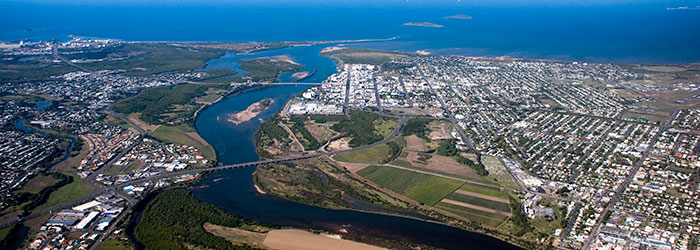Voluntary Mechanism for Stormwater Quality Management
Urban stormwater run-off contributes to poor water quality in waterways. This can harm aquatic ecosystems and poses a threat to the waterway's environmental values.
Council has been working towards improving the quality of urban stormwater since the preparation of a scoping study in 1999. An Urban Stormwater Quality Management Plan (USQMP) for Mackay was adopted in 2006 and associated stormwater quality objectives were contained in the Mackay City Planning Scheme. These objectives were revised in 2009 and 2013.
The voluntary mechanism for stormwater quality management (the mechanism) has been developed to improve the efficiencies of developments' stormwater quality management requirements through more cost effective alternative solutions. The mechanism is viewed as a locally appropriate approach to water quality management requirements for development that reflects the State Planning Policy's objectives.
The mechanism provides an alternative to achieving the development's on-site operational phase stormwater quality objectives via regional water quality improvements, including regional wetlands, rehabilitation of waterways, improved on-farm practices, water quality monitoring, education and other initiatives to improve stormwater quality run-off. Depending on the receiving environment, developments may, on application, be able to transfer part or all of their operational phase stormwater quality management requirements to regional stormwater quality solutions.
Developments, where the voluntary mechanism has been applied, will still need to achieve their construction phase stormwater quality objectives and manage their stormwater quantity in accordance with the State Planning Policy, Planning Schemes and the Queensland Urban Drainage Manual.
The benefits of implementing a policy on the voluntary mechanism for stormwater quality management include:
- Reduced loss of developable land.
- More cost effective implementation method, whereby constructed wetlands can be located in existing flood plain zones which are likely to be former wetland areas prior to rural development (restoring natural systems).
- Multiple outcomes (stormwater quality, revegetated waterways, linear open spaces, restoration of weed infested floodplains etc.).
- Avoids poorly integrated local stormwater quality solutions in new developments.
- Reduced lifecycle costs for stormwater quality management through a reduced number of distributed assets.
Participation in the stormwater quality mechanism is voluntary and assessment on the ability to achieve alternative solutions will be subject to application. The policy will be reviewed on a regular basis to ensure that the policy is leading to cost effective, improved water quality outcomes for the region.
More information
- Voluntary Mechanism for Stormwater Quality Management policy
- Stormwater Quality Management Scenarios - Region (PDF 3MB)
- Stormwater Quality Management Scenarios - Mackay (PDF 2MB)
- Stormwater Quality Management Scenarios - Sarina (PDF 650KB)
- Stormwater Quality Management Scenarios - Marian and Mirani (PDF 400KB)
